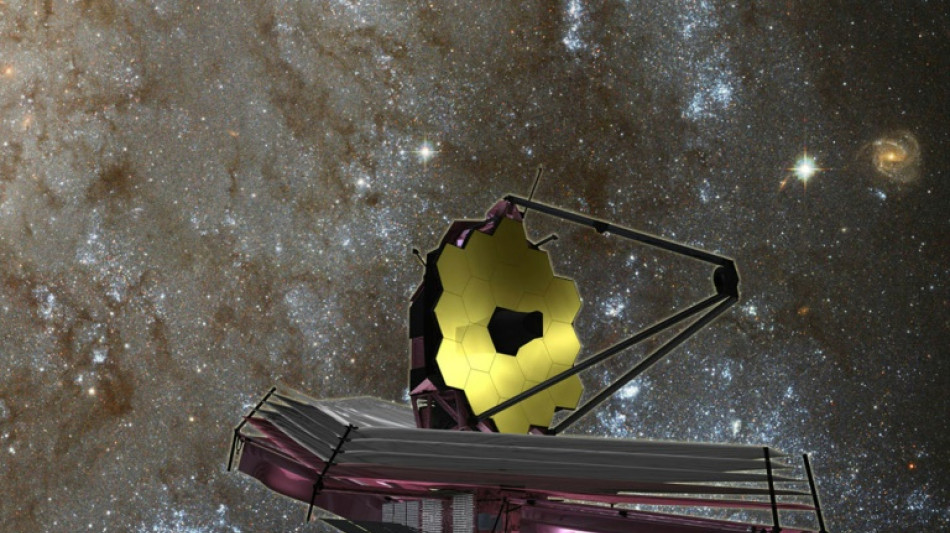
-
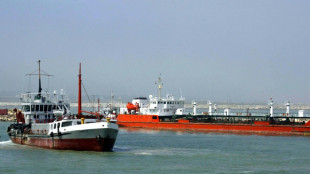 US stocks retreat from records as oil prices jump
US stocks retreat from records as oil prices jump
-
Dortmund outclass Bremen to tighten grip on second spot

-
 Shiffrin reasserts slalom domination ahead of Olympics with Flachau win
Shiffrin reasserts slalom domination ahead of Olympics with Flachau win
-
Fear vies with sorrow at funeral for Venezuelan political prisoner

-
 Pittsburgh Steelers coach Tomlin resigns after 19 years: club
Pittsburgh Steelers coach Tomlin resigns after 19 years: club
-
Russell eager to face Scotland team-mates when Bath play Edinburgh

-
 Undav scores again as Stuttgart sink Frankfurt to go third
Undav scores again as Stuttgart sink Frankfurt to go third
-
Fuming French farmers camp out in Paris despite government pledges

-
 Man Utd appoint Carrick as manager to end of the season
Man Utd appoint Carrick as manager to end of the season
-
Russia strikes power plant, kills four in Ukraine barrage

-
 France's Le Pen says had 'no sense' of any offence as appeal trial opens
France's Le Pen says had 'no sense' of any offence as appeal trial opens
-
JPMorgan Chase reports mixed results as Dimon defends Fed chief

-
 Vingegaard targets first Giro while thirsting for third Tour title
Vingegaard targets first Giro while thirsting for third Tour title
-
US pushes forward trade enclave over Armenia

-
 Alpine release reserve driver Doohan ahead of F1 season
Alpine release reserve driver Doohan ahead of F1 season
-
Toulouse's Ntamack out of crunch Champions Cup match against Sale

-
 US takes aim at Muslim Brotherhood in Arab world
US takes aim at Muslim Brotherhood in Arab world
-
Gloucester sign Springbok World Cup-winner Kleyn

-
 Trump tells Iranians 'help on its way' as crackdown toll soars
Trump tells Iranians 'help on its way' as crackdown toll soars
-
Iran threatens death penalty for 'rioters' as concern grows for protester

-
 US ends protection for Somalis amid escalating migrant crackdown
US ends protection for Somalis amid escalating migrant crackdown
-
Oil prices surge following Trump's Iran tariff threat

-
 Fashion student, bodybuilder, footballer: the victims of Iran's crackdown
Fashion student, bodybuilder, footballer: the victims of Iran's crackdown
-
Trump tells Iranians to 'keep protesting', says 'help on its way'

-
 Italian Olympians 'insulted' by torch relay snub
Italian Olympians 'insulted' by torch relay snub
-
Davos braces for Trump's 'America First' onslaught

-
 How AI 'deepfakes' became Elon Musk's latest scandal
How AI 'deepfakes' became Elon Musk's latest scandal
-
Albania's waste-choked rivers worsen deadly floods
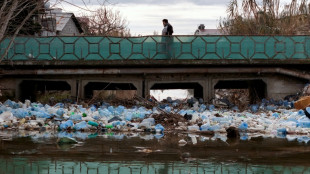
-
 Cancelo rejoins Barca on loan from Al-Hilal
Cancelo rejoins Barca on loan from Al-Hilal
-
India hunts rampaging elephant that killed 20 people

-
 Nuuk, Copenhagen mull Greenland independence in Trump's shadow
Nuuk, Copenhagen mull Greenland independence in Trump's shadow
-
WHO says sugary drinks, alcohol getting cheaper, should be taxed more
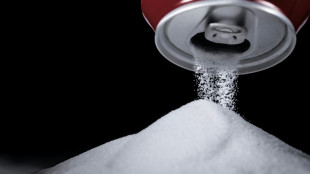
-
 Arteta urges Arsenal to learn from League Cup pain ahead of Chelsea semi
Arteta urges Arsenal to learn from League Cup pain ahead of Chelsea semi
-
Davos elite, devotees of multilateralism, brace for Trump

-
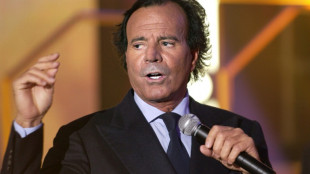 Spanish star Julio Iglesias accused of sexual assault by two ex-employees
Spanish star Julio Iglesias accused of sexual assault by two ex-employees
-
Trump's Iran tariff threat pushes oil price higher
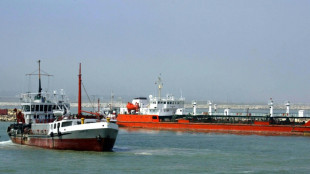
-
 US consumer inflation holds steady as affordability worries linger
US consumer inflation holds steady as affordability worries linger
-
Iran to press capital crime charges for 'rioters': prosecutors

-
 Denmark, Greenland set for high-stake talks at White House
Denmark, Greenland set for high-stake talks at White House
-
Iranian goes on trial in France ahead of possible prisoner swap

-
 Cold winter and AI boom pushed US emissions increase in 2025
Cold winter and AI boom pushed US emissions increase in 2025
-
Hong Kong activist investor David Webb dies at 60
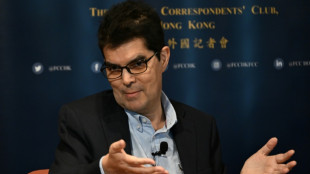
-
 Try to be Mourinho and I'll fail: new Real Madrid coach Arbeloa
Try to be Mourinho and I'll fail: new Real Madrid coach Arbeloa
-
Vingegaard targets Giro d'Italia and Tour de France double

-
 South Korean prosecutors demand death penalty for ex-leader Yoon
South Korean prosecutors demand death penalty for ex-leader Yoon
-
Iwobi hails Nigerian 'unity' with Super Eagles set for Morocco AFCON semi

-
 Le Pen appeal trial opens with French presidential bid at stake
Le Pen appeal trial opens with French presidential bid at stake
-
Iran ex-empress urges security forces to join protesters

-
 Sudan 'lost all sources of revenue' in the war: finance minister to AFP
Sudan 'lost all sources of revenue' in the war: finance minister to AFP
-
Freezing rain hampers transport in Central Europe


Webb telescope finds CO2 for first time in exoplanet atmosphere
The months-old James Webb Space Telescope has added another major scientific discovery to its growing list: detecting for the first time signs of carbon dioxide in the atmosphere of a planet outside our solar system.
Although the exoplanet would never be able to support life as we know it, the successful discovery of CO2 gives researchers hope that similar observations could be carried out on rocky objects more hospitable to life.
"My first thought: wow, we really do have a chance to detect the atmospheres of terrestrial-size planets," tweeted Natalie Batalha, a professor at the University of California at Santa Cruz and one of hundreds who worked on the Webb project.
Their study of exoplanet WASP-39, a hot gas giant closely orbiting a star 700 light years away, will soon be published in the journal Nature.
"For me, it opens a door for future research on super-Earths (planets larger than Earth but smaller than Neptune), or even Earth-sized planets," Pierre-Olivier Lagage, an astrophysicist with France's Atomic Energy Commission (CEA), told AFP.
The detection of CO2 will also help scientists learn more about how WASP-39 formed, NASA said in a press release. The exoplanet, which orbits its star once every four Earth days, has a mass one-quarter that of Jupiter but a diameter 1.3 times bigger.
The frequency of its orbit and large atmosphere made WASP-39 an ideal candidate for an early test of Webb's state-of-the-art infrared sensor, known as NIRSpec.
Each time the exoplanet crosses in front of its star, it blocks out an almost imperceptible amount of light.
But around the edges of the planet, a tiny amount of light passes through the atmosphere.
Webb's highly sensitive NIRSpec can detect the small changes that the atmosphere has on the light, allowing scientists to determine its gas composition.
The Hubble and Spitzer telescopes had already detected water vapor, sodium and potassium in WASP-39's atmosphere, but carbon dioxide can now be added to that list thanks to Webb and its NIRSpec instrument.
"It was a special moment, crossing an important threshold in exoplanet sciences," said Zafar Rustamkulov, a Johns Hopkins University researcher, in the NASA press release.
B.Mahmoud--SF-PST



